June 13, 2025 | 19:38 GMT +7
June 13, 2025 | 19:38 GMT +7
Hotline: 0913.378.918
June 13, 2025 | 19:38 GMT +7
Hotline: 0913.378.918
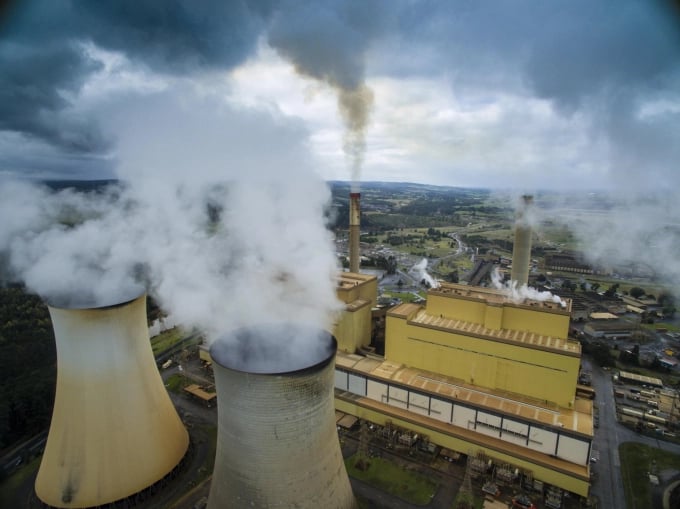
Vietnam is making efforts to reduce greenhouse gas emissions.
With the aim of supporting the Vietnamese business community to apply advanced technology solutions and participate in the low-carbon production model certification system and potential carbon credit market, Vietnam Chamber of Commerce and Industry (VCCI) recently cooperated with Dai Thanh Joint Stock Company and Carbon Friendly Company to organize a seminar "Cooperation to improve competitiveness of Vietnamese enterprises in the value chain of global sustainable agricultural products through a carbon credit market and certification system”.
According to Mr. Hoang Quang Phong, Vice President of VCCI, Vietnam is considered as one of the countries heavily affected by climate change with the increase of extreme weather phenomena and sea level rise. It will seriously affect food security, water security and sustainable development, even threaten the survival of the nation and the population. Currently, Vietnam has been actively looking for specific, practical and effective solutions to respond to climate change.
Vietnam and nearly 180 countries have joined the Climate Convention signed in April 2016 at the United Nations headquarters. On November 3, 2016, the Notice of Paris Agreement to implement the United Nations Framework Convention on Climate Change was approved by the Government of Vietnam and officially sent to the Secretary-General of the United Nations. Vietnam commits to reduce greenhouse gas emissions by 8% compared to the development-as-usual scenario, with a target of up to 25% reduction if supported by the international community, through the National Strategy on Climate Change and the Strategy on Green Growth.
In addition, within the framework of commitments made by Prime Minister Pham Minh Chinh at COP26, Vietnam and nearly 150 countries have committed to bring net emissions to "zero" by 2050; with more than 100 countries participating in the pledge to reduce global methane emissions by 2030 compared to 2010, 141 countries join the Glasgow leaders’ declaration of forest and land use, and nearly 50 countries participating the Global declaration of coal-to-clean energy transition.
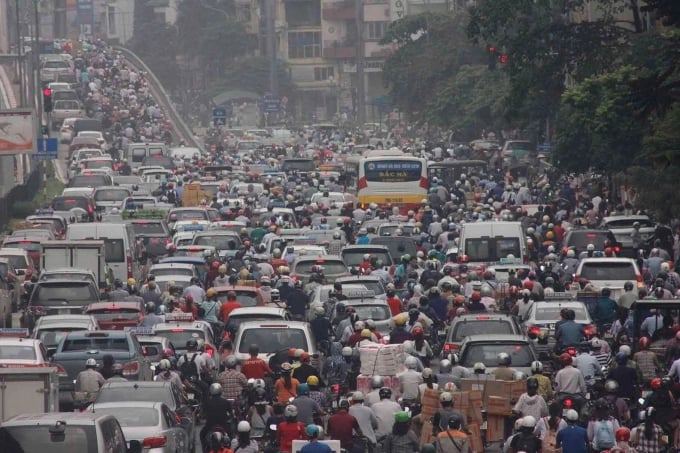
Transportation is a major source of greenhouse gas emissions.
The Government of Vietnam has developed a roadmap for the implementation of strategies, plans and programs to promote green growth in association with socio-economic development, in line with the world's general trend of applying standards in the development of green economy, circular economy and digital economy, thereby help to increase the value of exported goods and promote Vietnamese brands in the global supply chain. Specifically, the Law on Environmental Protection 2020 stipulates that Vietnam's carbon credit market is one of the economic tools that need to be developed.
“In fact, Vietnamese enterprises have produced and traded carbon credits on international exchanges, but these transactions have not attracted much attention. It is estimated that about 57 million carbon credits with a value of up to hundreds of millions of US$ has been unexploited," Mr. Hoang Quang Phong analyzes.
A carbon credit is a certificate that is commercially tradable and represents the right to emit one ton of carbon dioxide (CO2) or one ton of carbon dioxide equivalent (CO2e). In other words, a carbon credit is a generic term for a businessable credit or permit that represents 1 ton of carbon dioxide (CO2) or the mass of another greenhouse gas equivalent to 1 ton of CO2 (tCO2e). Trading in CO2 emissions or trading in carbon in the market is done through credits.
In the trend of developing a green economy and sustainable growth, Vietnam's agricultural sector is one of the important links when it deals to dual goals. That is both reducing greenhouse gas emissions and seizing opportunities and great potential from the carbon credit market.
Sharing with Vietnam Agriculture News (VAN) on the sidelines of the seminar, Mr. Nguyen Duc Truong, General Director of Dai Thanh Joint Stock Company assessed that Vietnam is now one of the countries that has a large agricultural production area, in addition to rice production, there is also a large area of afforestation as well as fruit trees. In fact, the agricultural production process in Vietnam is abusing chemical fertilizers and pesticides, thereby strongly contributes to the greenhouse gas emissions.
“The current global trend is towards reducing greenhouse gas emissions to 0%, the Government of Vietnam has also made commitments to the world on this issue. To achieve that goal, Vietnam's agricultural sector needs to apply new methods and technologies in production, such as using organic fertilizers, bio-fertilizers to help reduce the amount of fertilizer needed. Organic fertilizers and bio-fertilizers also contain beneficial organisms for the environment, thereby not causing greenhouse gas emissions," said Nguyen Duc Truong.
Mr. Truong also pointed out that the application of drones in agricultural production is also a solution to help reduce greenhouse gas emissions. Drones will use battery fuel, not fossil fuels such as gasoline, oil, etc., thereby it will cut a large amount of greenhouse gas emissions.
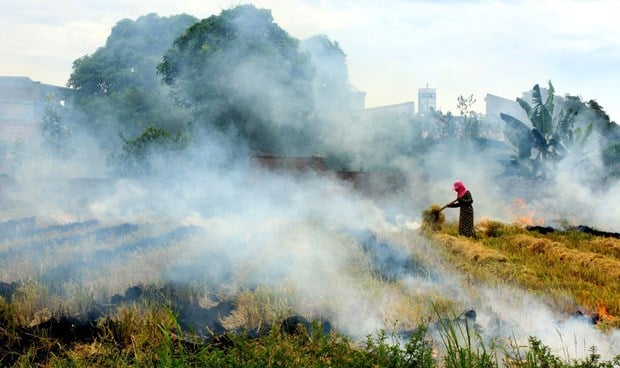
Agricultural production has a strong impact on greenhouse gas emissions.
In rice production in Vietnam, especially in large production areas such as the Mekong Delta, the application of drones will support farmers to fully automate the stages of sowing, spraying pesticides, spreading fertilizers… Thanks to that, farmers can cut a large amount of at least 20% of pesticides in production.
Assessing the potential of Vietnam in participating in the carbon credit market, Mr. Nguyen Duc Truong said that due to the large agricultural production area as well as the large afforestation and fruit tree planting areas in the Mekong Delta and the Red River Delta, Vietnam's agriculture sector has obvious potential in this field.
At the seminar, a representative of the Department of Climate Change (Ministry of Natural Resources and Environment) pointed out three sectors that can participate in the domestic carbon market. One is the establishments on the list of sectors and facilities that emit greenhouse gases that must have a greenhouse gas inventory promulgated by the Prime Minister.
The second is organization participating in the implementation of the domestic and international carbon credit exchange mechanism in accordance with the provisions of law and international treaties to which Vietnam is a member.
The third is other organizations and individuals related to investment and trading in greenhouse gas emission quotas and carbon credits in the carbon market.
According to the Department of Climate Change, in order to be able to mitigate greenhouse gas emissions, it is necessary to have policy solutions and management activities to reduce greenhouse gas emissions; greenhouse gas emission reduction plan at many levels; technologies, production processes and services with low greenhouse gas emissions; mechanisms and methods of cooperation on mitigation of greenhouse gas emissions in accordance with the provisions of law and international treaties to which Vietnam is a member.
Translated by Duc Thuan

(VAN) Noting risks, report examines impacts of avian influenza, changing trade patterns since 2022, fish fraud, and shipping industry’s net-zero goals.

(VAN) Mr. Tran Quang Bao, General Director of the Forestry and Forest Protection Department, met and worked with the International Wood Products Association to promote cooperation in the field of timber trade.

(VAN) China's outbound shipments of rare earths in May jumped 23% on the month to their highest in a year, though Beijing's export curbs on some of the critical minerals halted some overseas sales.

(VAN) To sustain capital flow, administrative reform alone is not enough; what farmers truly need is an ecosystem where both government and businesses grow together in support.
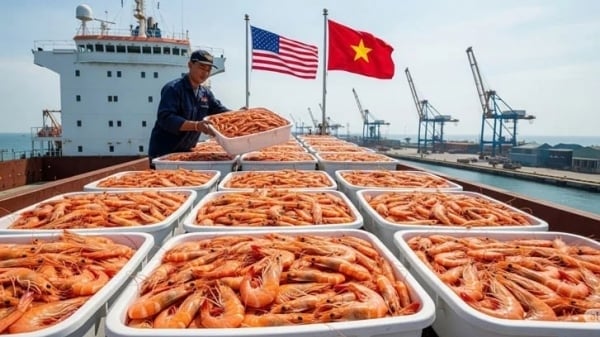
(VAN) Vietnam and the United States are proactively working together, each in their own way, to ensure that every container of agricultural goods carries not just products, but also long-term trust and value.
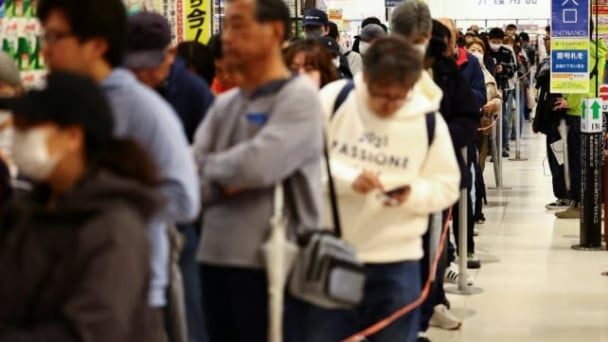
(VAN) Stores have started selling rice from the government’s stockpile to feed demand for the staple.
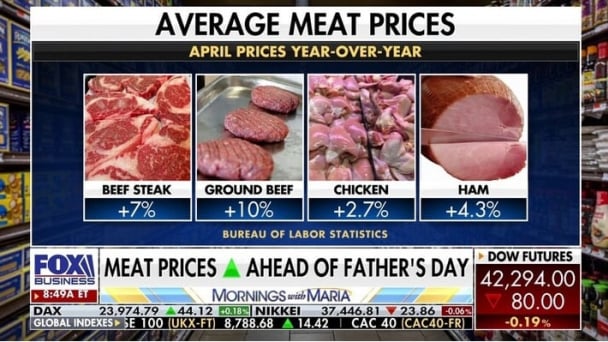
(VAN) Omaha Steaks CEO says rebuilding cattle herds will take about a year to ease price pressures.